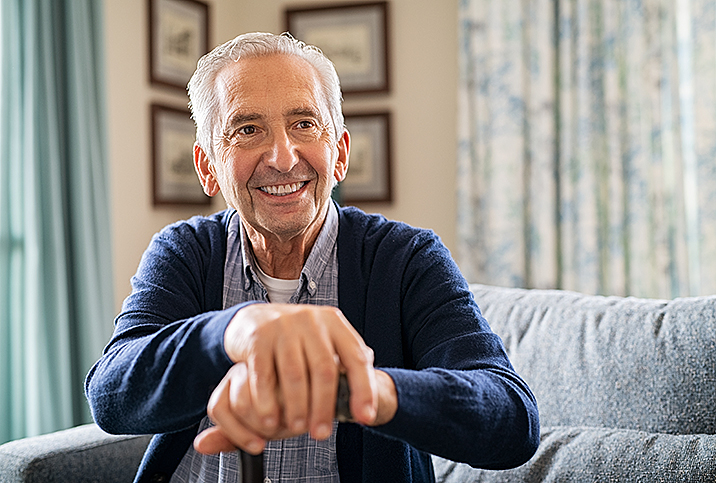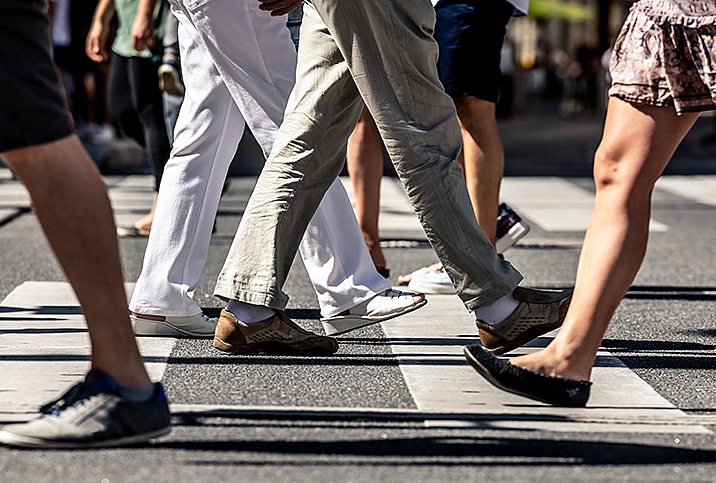Falling in Old Age Can Be Deadly—Here's How to Avoid It

Falling as an older adult can result in many possible consequences, including healthcare costs to cover related injuries or even death if no one is on the scene to help. Just the risk of falling can lead to lower quality of life and social isolation if older adults find themselves limiting their activities out of caution.
Twenty-five percent of Americans ages 65 and older fall every year, according to the National Council on Aging. Additionally, the Centers for Disease Control and Prevention (CDC) reports falls are the leading cause of fatal injury and the most common cause of non-fatal, trauma-related hospital admissions among older individuals.
Keys to preventing falls
Though falls are common among older adults, experts say they are avoidable with some strategies.
"Falls are a leading cause of death in older adults and there are many resources to help prevent them," said Holly Riley, aging services coordination director for the Texas Health and Human Services Commission. "To make your home safer, eliminate hazards like throw rugs that are slippery, cords and wires on the floor, stacks of papers, magazines, etcetera. It's also important to monitor medication that can make someone imbalanced."
Jan Galvan, who works as the client coordinator at Dallas Texas Caregivers, said one of the first steps she takes with a new client who needs a caregiver is to go through their house and eliminate anything that could be a falling hazard.
"I go to every room to make sure they don't have any rugs out that they could trip on," Galvan explained. "You also have to make sure anything they could get hurt on if they fall is out of the way, like knives and things like that. Another important one is we make sure that their bathrooms are equipped with the proper items that they need for their shower, like a shower chair and support rails. We make sure that their commodes aren't so low to the ground that they are straining to lower themselves to go to the bathroom and that they don't have trouble standing back up afterward, because that could lead to a fall, as well."
To prevent falls, it's helpful to first understand the potential causes, including vision or hearing problems, slower reflexes, mental confusion and health conditions such as heart disease, diabetes, thyroid issues and more. Medications that cause dizziness or drowsiness can also lead to an increased risk of falling.
If you notice any medication you take is making you sleepy or dizzy, talk to your doctor or pharmacist right away. With the help of a medical professional, you can determine whether the medication is right for you and if there are ways to minimize side effects.
Maintaining regular exercise and a balanced diet can help prevent falls by preventing or improving underlying health conditions and strengthening muscles essential for balance.
Furthermore, maintaining regular eye and hearing appointments is essential as even slight changes to these senses can affect balance and increase your risk of falling, according to the National Institute on Aging. If you struggle with your balance, talk to your doctor to determine whether you might benefit from a walking aid, such as a walking stick or a walker.
Physical changes resulting from getting older are inevitable. For many people, these changes are not only related to balance and strength, but also to sexual health. Fortunately, both men and women can maintain a healthy sex life even as their sexual health evolves over the years.
Seeking support and maintaining agency
Sometimes, asking for help can feel like a loss of independence, but you shouldn't let this feeling cause you to hesitate to open up to your support system about your needs. In fact, enlisting some help from a partner, caregiver or friend to implement fall prevention measures in your home, as well as developing a strategy with your doctor, can ease your mind and make you feel safer to carry out your daily activities and live a full life.
Falling, or the fear of it, doesn't have to be part of aging. Being proactive about fall prevention can free you to carry on with life confidently.
"We all want to hold on to our sense of agency for as long as we can," Galvan said. "We're all living longer, and many of us understandably want to age in place, in our homes. We can do that safely with safety measures and help from others when needed."


















